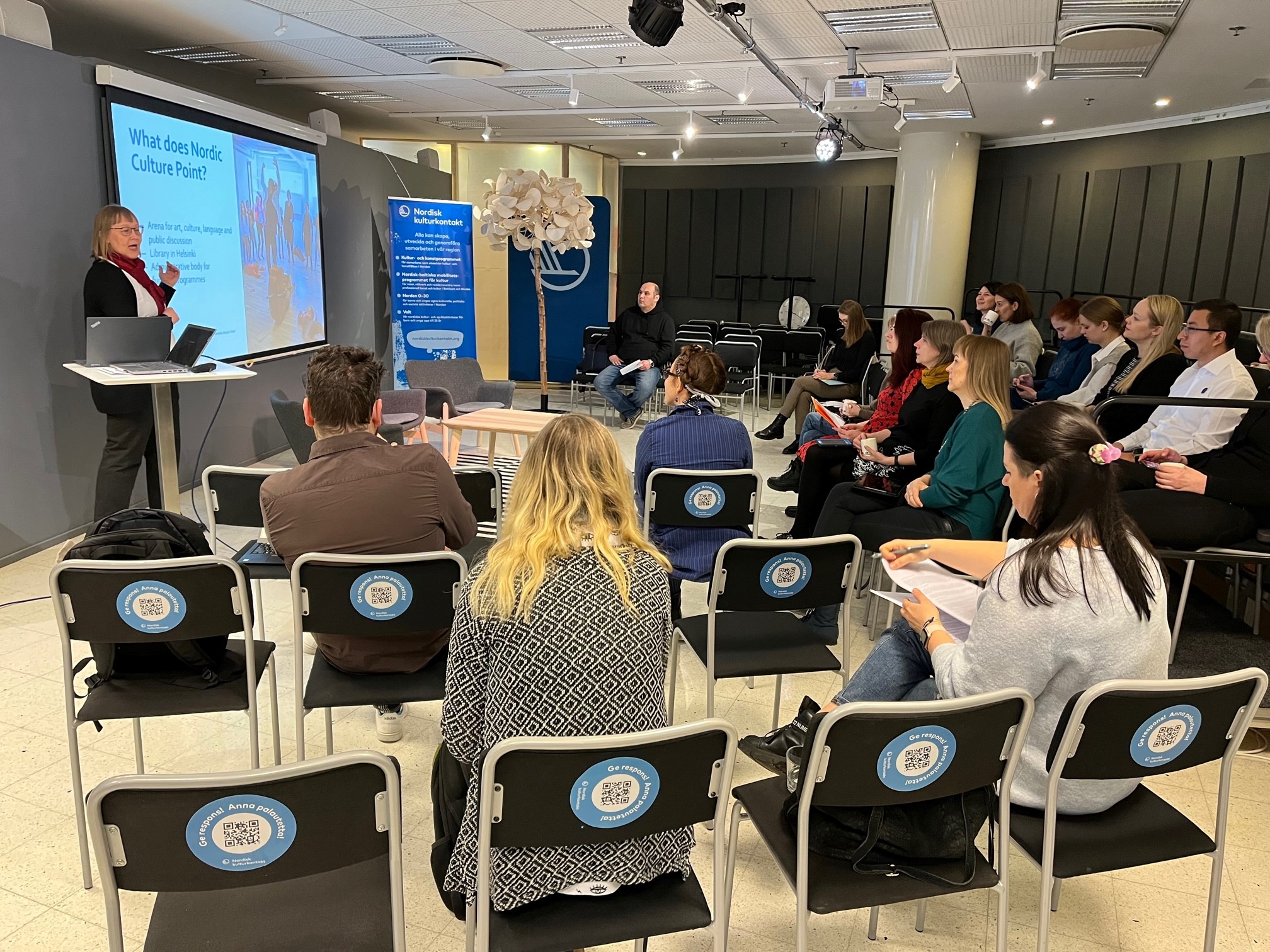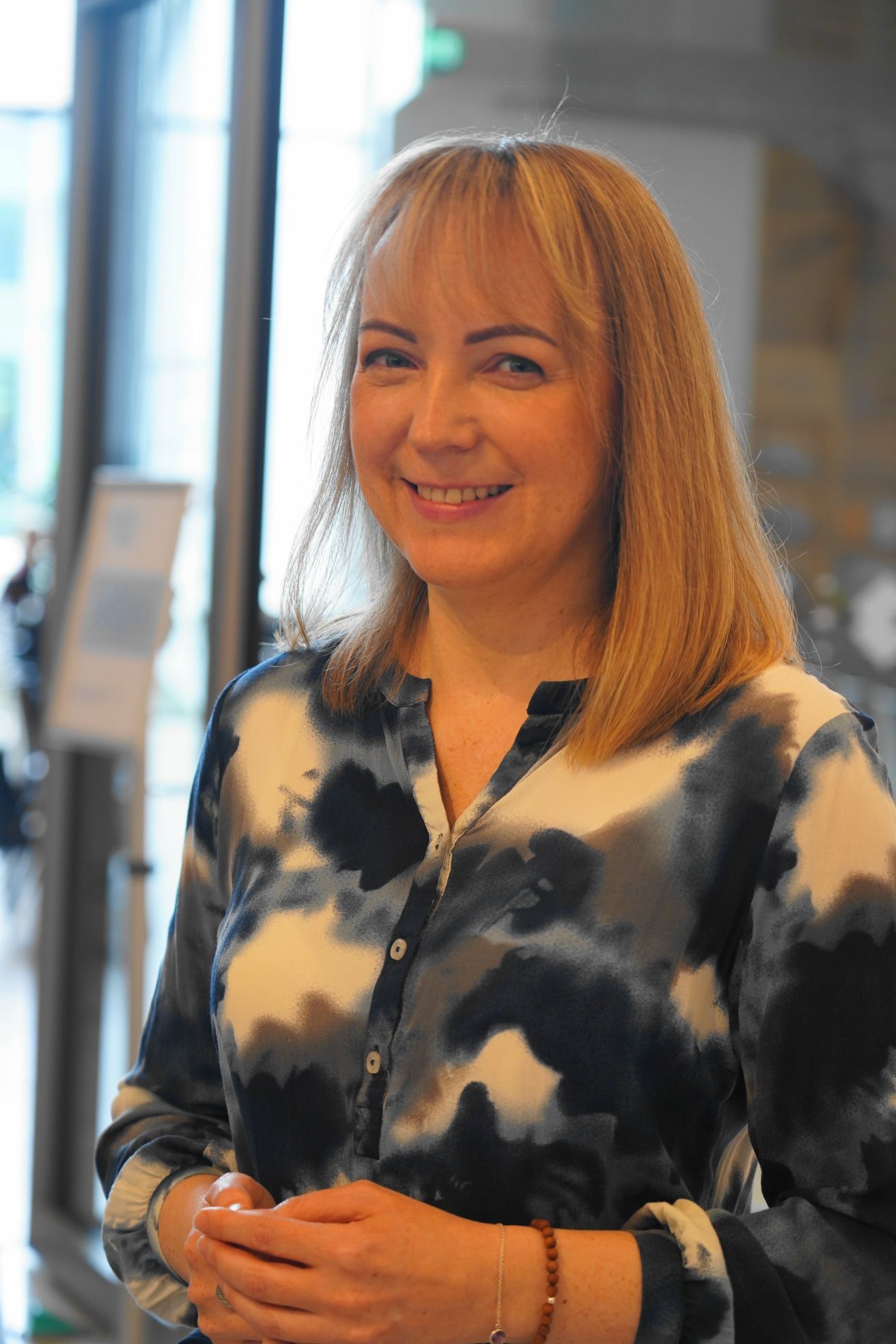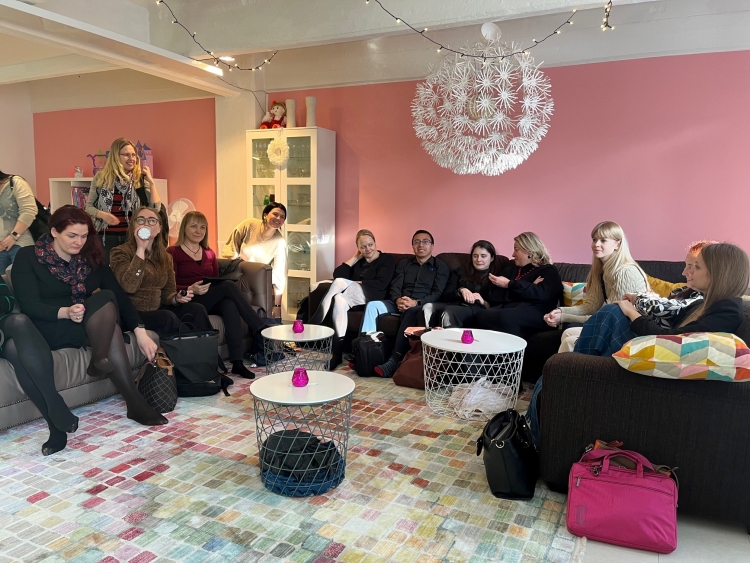The participants visited the Nordic Welfare Centre, the Nordic Culture Point, associations and institutions dealing with integration, and the Vantaa City Government.
Finland relies on civil society to integrate migrants
The approach in Finland is that public services alone are not enough to integrate immigrants, and that members of society must also be involved and encouraged to contribute and be more open and welcoming to newcomers or people who are different from themselves. Inclusion in employment, early childhood education, education in general, social and health services, housing policies, participation of civil society, i.e. NGOs, and equal treatment in everyday life are considered important in integration policy.
Integration takes place at the local level and the contribution of civil society in this area is crucial. In the meetings, it was mentioned that one of the problems with integration is the fact that, as all official communication takes place in Finnish, newcomers may not always understand the rules and social organisation of the host country due to their poor language skills. The activities of NGOs are helpful – in Finland, 54% of the population is involved in an NGO and 40% in volunteering. Inclusive integration is promoted to create a more cohesive society. Civil society is empowered to contribute and participate in planning and debates.
From 2023 to 2024, the focus will be on gender-sensitive integration and the empowerment of talent. The participants pointed out that in Estonia, most of the contacts immigrants have with local people is either at work or at school, so it would be worth considering how to increase opportunities for other contacts.
The arrival of refugees is agreed and planned
A large number of refugees arrive in Finland through the UNCHR and are distributed as planned between the local governments. So instead of random arrival, there is agreed and planned reception. Some regions, such as Vantaa, do not participate in the scheme because they already have a significant number of immigrants or refugees – the capacity of the region to provide social support, housing and jobs for new arrivals is also taken into account.
There are nearly 50 thousand refugees from Ukraine in Finland, half of them of working age, but only 7,400 are registered with the employment office. Refugees have the status of a new immigrant for the first three years, during which they will be able to participate in an adaptation programme, where the local government has to ensure access to, among other things, health services. However, there are long waiting lists for medical treatment, especially for mental health, but this is often the area where refugees need help most after their arrival. The adaptation programme is a course that lasts for a year and is a combination of language and adaptation training.

Seminar in Nordic Culture Point. Photo: Madis Kanarbik
Finnish integration initiatives
Meetings with representatives of Finnish governmental institutions, NGOs and other civic initiatives were held to introduce to the participants the integration initiatives and methods that have been well received in Finland:
The Finnish Refugee Council was created 60 years ago, its international side has a budget of €3.6 million and 160 employee, and its local side has a budget of €1.5 million and 40 employees. The local level has three strands: resilience, labour market, relations.
Think Africa was created by students to give a more realistic picture of Africa and break stereotypes. It is possible to test ideas and turn them into events, and sometimes they give rise to bigger ideas and separate organisations.
The Moniheli Network is an umbrella organisation for non-profit organisations that aims to raise awareness and build the capacity of organisations working in the field of integration, consultancy and community work. Projects and initiatives in the field of adaptation receive funding and civil society initiatives receive support through Moniheli.
House of Helsinki supports immigrants through volunteers. Volunteering is very popular in Finland, but often among older people and the question is how to get younger people involved. For example, by offering a volunteering certificate that can be used as proof of experience when applying for a job.
Mirsal Ry is a messenger between Arab and Nordic countries. They use a modern approach where the immigrants for whom these activities and services are jointly created are also on the management board. They give a lot of attention to women’s rights and opportunities and to supporting them. However, it is necessary to educate men to allow their daughters or wives to take part in the association’s activities. A similar background comes in handy in education and inclusion, and is used to good effect in building trust in this organisation.
Nicehearts Ry is an association that focuses on the inclusion of women and mothers. Its mission is to give girls and women the opportunity to find their place in society as equals. One of the projects they have initiated is called Neighbourhood Mothers – We can do it! Immigrant women who have been in the country for more than two years are active in the association. They help other women and don’t need to speak Finnish to do this, because they find it easier to connect with and establish trust in their own ethnic group in their own language.
Why is it necessary? The national system is mostly based on Finnish, but the association tries to be more flexible with language and communication, and is based on the idea that language skills develop when it is actively used. Cultural and gender sensitivity, the learning process and anti-racism, and the creation of safe spaces are all important to the association. For example, when an expert is invited to give a presentation, care is taken to ensure that he or she speaks in plain Finnish. The courses cover a wide range of important topics – health, employment relations (unions, rules, rights), domestic violence (where to go when someone asks you for help or where to go yourself if necessary), rights in society, how to recognise and deal with racism.
The women who belong to Neighbourhood Mothers are also influencers. Women create their own campaigns, share information in their own language and involve their husbands. They proceed from the following principles and guidelines: think critically, find support, you can do it, you’re not alone, change exists in us all!
Immigration Dialogues is an initiative based on dialogues that is used to create and develop the new integration act. A total of 676 individuals and 62 organisations participated in the discussions and 72 discussions were held. The topics of the discussions included arriving in Finland, important moments of integration, working life, raising children, general discussions on immigration: https://intermin.fi/en/immigration-dialogues.
ETNO – Advisory Board for Ethnic Relations. Finland has built its society on the activity of civil society. ETNO was set up in 1970, but the issue back then was not immigration, the concern was emigration. ETNO is a dialogue platform – it gives advice, connects experts, develops networks, strengthens cooperation between officials, organisations and stakeholders, helps to find common understanding.
Startup Refugees focuses on employment and entrepreneurship, supports the creation of a network bringing together entrepreneurs and new immigrants interested in this field. There are more than 2,000 businesses, communities and individuals in the network.
Visit to Vantaa
Around 240 thousand people live in Vantaa and 55 thousand of them are foreign language speakers. Vantaa is Finland's fourth largest but most multicultural city, with a total of 120 foreign languages spoken (TOP3 languages in 2021 – RUS/9,400, EST/8,600, Arabic/4,600). The visit included a meeting with the Mayor of Vantaa Ritva Viljanen, who said that 25% of the city’s population and 30% of students in Vantaa are not native speakers of Finnish. Youth workers, artists, etc. have been recruited in the education sector to ensure free access to activities that promote integration, so that everyone can take part regardless of language. The city cooperates with non-profit organisations and religious associations.
Culture Kids – children born in 2023 and later will be eligible for Culture Kid status. They will be invited for a health check every two months and will be able to take part in free events twice a year, organised to avoid the emergence of language barriers. Unlike other public services, information on this option is available in a large number of languages. This gives all families and children access to culture, and later, when they go to nursery school, they will continue to be in contact with the society and culture/education in a systematic way, see www.vantaa.fi/culturekids.
Home in Vantaa focuses on stay-at-home parents whose native language is not Finnish. As the OECD report shows that the integration and social inclusion of immigrant women is low, a national project was launched to address this problem, funding was secured and the local authorities have been asked to implement the project. There are 1,837 immigrant parents receiving family benefits in Vantaa.
Hakunila International Organization was established 25 years ago and is made up of representatives of different nationalities. It focuses on older people and mothers with children, organised projects for Russian-speaking young people and a youth café, taught how to use e-services and much more. The Coaching Together project was created to promote employment. Many projects have been carried out in cooperation with local authorities.
Russian Club Vantaa is a hobby education centre for children and young people. There are different clubs for young people aged 13 to 18, youth centres for leisure activities, a food and cooking club, hobby clubs for girls and boys. Last year, the centre sent over 40 young people to Erasmus+ exchange programmes. In Finland, a lot of attention and support is given to dealing with Russian-speaking immigrants.
The Migration Institute of Finland was founded 50 years ago in 1974 and initially focused on emigration. Almost 8% of the population to date was born outside Finland. Immigration is concentrated in the larger cities, the capital region and Helsinki.
The study visit provided inspiration which can also be fostered in Estonia
 Janika Hango, Head of the Tartu Welcome Centre:
Janika Hango, Head of the Tartu Welcome Centre:
The Nordic countries have been working on adaptation for decades, but Estonia has been doing it for considerably less time. It’s always good and exciting to see sectoral practices that have worked for a long time, so that we can later select activities that could and should be applied here as well.
The Neighbourhood Mothers initiative made the most vivid impression during the study visit to Finland. Its personal approach, warmth and care for newcomers to the region was something that could be more consciously fostered and encouraged in Estonia. The study visit as a whole, however, confirmed the view established in earlier work that there is a profoundly meaningful and natural opportunity for the community to support newcomers. Local authorities have the opportunity (unfortunately often not taken) to help discover knowledge and skills within the community and thereby support communities in welcoming newcomers and facilitating their adaptation.
The text was prepared based on Janika Hango's study visit notes.
The Nordic-Baltic refugee and immigrant intergation project FOR-IN takes place in cooperation with the Nordic Council of Ministers, the UNHCR, the Ministry of Culture, the Ministry of Education and Research, the Tartu Welcome Centre and many other partners from 2022 to 2023. Read more here.

